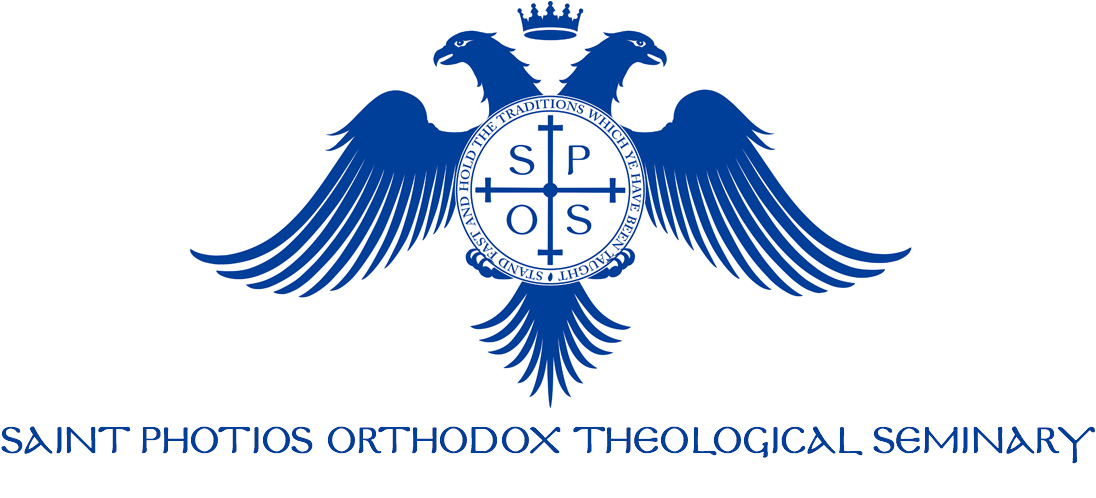Nativity Encyclical 2012
- Details
- By Bishop Sergios
- Created on Saturday, 05 January 2013 18:34
5 January 2013 (civil calendar)
23 December (ecclesiastical calendar)
The Nativity of our Saviour, the Lord Jesus Christ
To the Clergy and Laity in the Portland Diocese, greetings on the Nativity of our incarnate Lord.
Whether worshipping in communities, or chanting services individually in homes, the Church is guiding us with a sure hand through the Royal Hours just celebrated, through to the Liturgy of Saint Basil the Great on Christmas Day - 3 days ahead of us as I write these lines.
Our liturgical texts powerfully bring those who will encounter them to a moment when truth ceases to be an academic abstraction, and becomes the wondrous presence of the living God. The Royal Hours we have just heard connect us to the intense expectation of the people of the Old Testament for the Messiah’s coming.
Announced by Prophets long in advance of the event itself, Israel thirsted for the day of the coming of the Lord. As the New Israel, we the Church inherit all of that expectant excitement as we near the Feast. And our expectations are fulfilled on the Festal Day itself, when once again we immerse ourselves in the singular beauty of the Divine Liturgy, and receive the Body and Blood of Christ Himself.
Unlike the old Israel, the Church’s joy is the joy of people long-since gifted with the presence of Christ, a presence renewing itself constantly, especially visible in the lives of the Saints, for whom the presence of God is at the heart of everything.
If what we carry home with us from the services for the Nativity is a singular sense of awe at the humility of the Lord God Almighty, Who came to us while we were yet sinners, against all logic and justice, and took flesh from the Virgin Mary, and became man, and shared our exile from Paradise - if this voluntary humility of Our God causes us to catch our breath - then we will have grasped the meaning of the Incarnation of the living God.
And if we take our sense of awe at God’s humility, and reflect on that alone, and if this transforms us - in all our relationships - then the miracle of the coming of God in the flesh will have started its ferment within us, blessing us, and blessing all who share our life.
Since it is certain that the summation of the entire Old Testament is that we love God with all that is within us, and our neighbour as ourself - what better place to begin to reflect on the God Who is not far from us, but very near, than the Feast of our God’s Incarnation in the flesh? What better school could there be than this Feast of the Incarnation of the Messiah, in which to learn to fall to loving this God, more than anything else that we have ever loved - this God Whose love for us is so complete, and so uncompromising, that He humbles Himself in order that we may be transformed, and saved? We repent before the humility of this God, Who is love, and Who loves us more than we can love ourselves.
And can we doubt that God’s transforming love can not transform our contemporary lives, even if we suffer from the catastrophe of indifference - cold indifference both to God and man? Monastics say, “We pray to the God Who surprises us”. Good enough.
And if the Nativity Services take us by surprise - if they catch us off-guard, if they even take our breath away - then we will have celebrated Christmas with the Shepherds and the Angels and the Magi and the entire body of the Church through the ages. Our indifference will have been healed.
Fathers and brethren: May this great gift of Christmas be found within each of us.
And may our sheer delight, and gratitude, and amazement, all bound together by humility, become a light for all who seek a life worth living. This renewed life is just where loving God and our neighbour is going to take us.
In Christ’s saving love, greeting you with the joy of the Feast of the Lord’s Incarnation,
+Bishop Sergios of Portland
05 January 2013
23 December 2012 (ecclesiastical calendar)
1 Luke 10:25-37
Missions
Saint John of Kronstadt - Bunnell, Florida
St. John of Kronstadt Orthodox Church began as a mission parish in the year 2000, in a home chapel in Palm Coast, FL – a small town on Florida’s northeast coast located between St. Augustine and Daytona Beach. After two years, it became necessary to have services in area community centers, rented for Sundays and other Holy Days. Read more...
Youth
2025 Youth Conference
Please join us for the 2025 youth conference in Toronto, Ontario, Canada! To learn more, visit the conference website.
Ask A Priest
Why do we Call Angels “Saint”?
Q. I noticed that we call the angels Michael and Gabriel "Saint." I thought the title "Saint" was only given to humans who have proven themselves Godly. Do you mind clarifying this for me? Is there a deeper meaning to "Saint" that I am not aware of?
-S.L. Read more...





